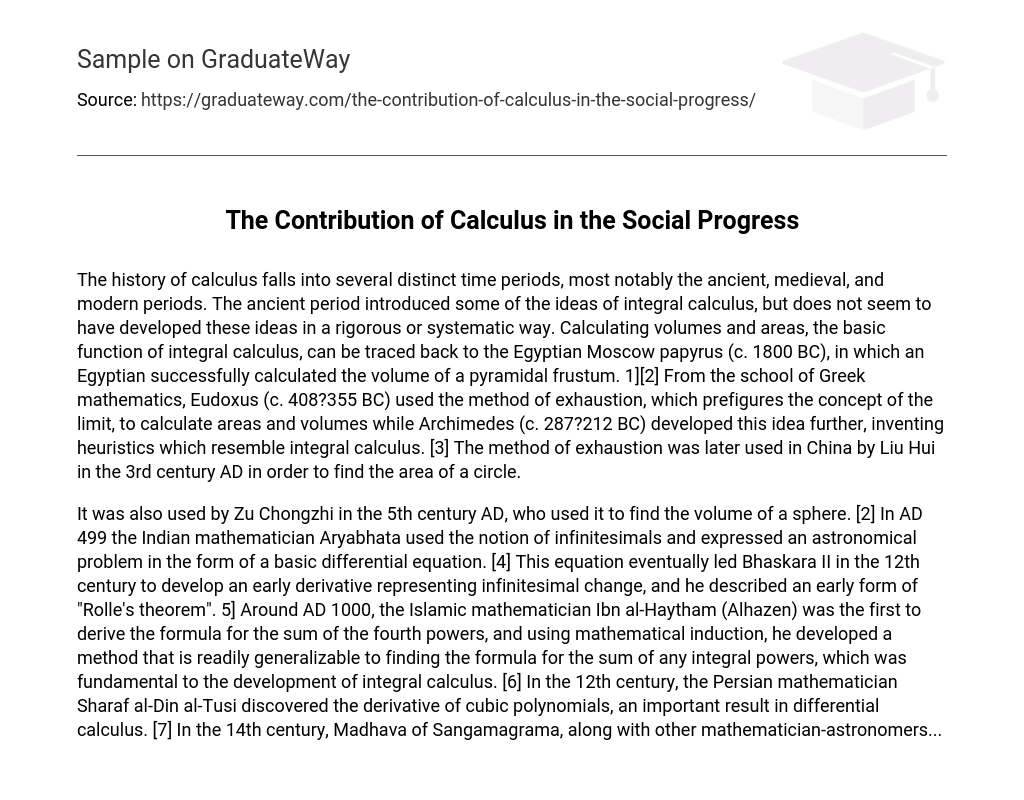The history of calculus is divided into several time periods: ancient, medieval, and modern. Although integral calculus was introduced in the ancient period, it was not developed rigorously or systematically. The calculation of volumes and areas, which is the primary purpose of integral calculus, can be traced back to the Egyptian Moscow papyrus (c. 1800 BC). In this document, an Egyptian successfully determined the volume of a pyramidal frustum. [1][2] Eudoxus (c. 408-355 BC), a mathematician from the school of Greek mathematics, used the method of exhaustion to calculate areas and volumes, prefiguring the concept of the limit. Archimedes (c. 287-212 BC) further advanced this idea and invented heuristics that resemble integral calculus. [3] The method of exhaustion was later employed in China by Liu Hui in the 3rd century AD to find the area of a circle.
During the 5th century AD, Zu Chongzhi utilized the concept of integration to determine the volume of a sphere. Aryabhata, an Indian mathematician in AD 499, employed infinitesimals and formulated a basic differential equation to solve an astronomical problem. Bhaskara II then used this equation to develop an early derivative that represented infinitesimal change, and he introduced a version of “Rolle’s theorem” in the 12th century. In AD 1000, Ibn al-Haytham (Alhazen), an Islamic mathematician, became the first person to derive the formula for the sum of fourth powers. He also developed a method employing mathematical induction that could be extended to find the formula for the sum of any integral powers, which played a crucial role in the advancement of integral calculus. Additionally, during the 12th century, Sharaf al-Din al-Tusi, a Persian mathematician, discovered how to calculate the derivative of cubic polynomials – a significant accomplishment in differential calculus. Furthermore, in the 14th century, Madhava of Sangamagrama and other mathematician-astronomers…





